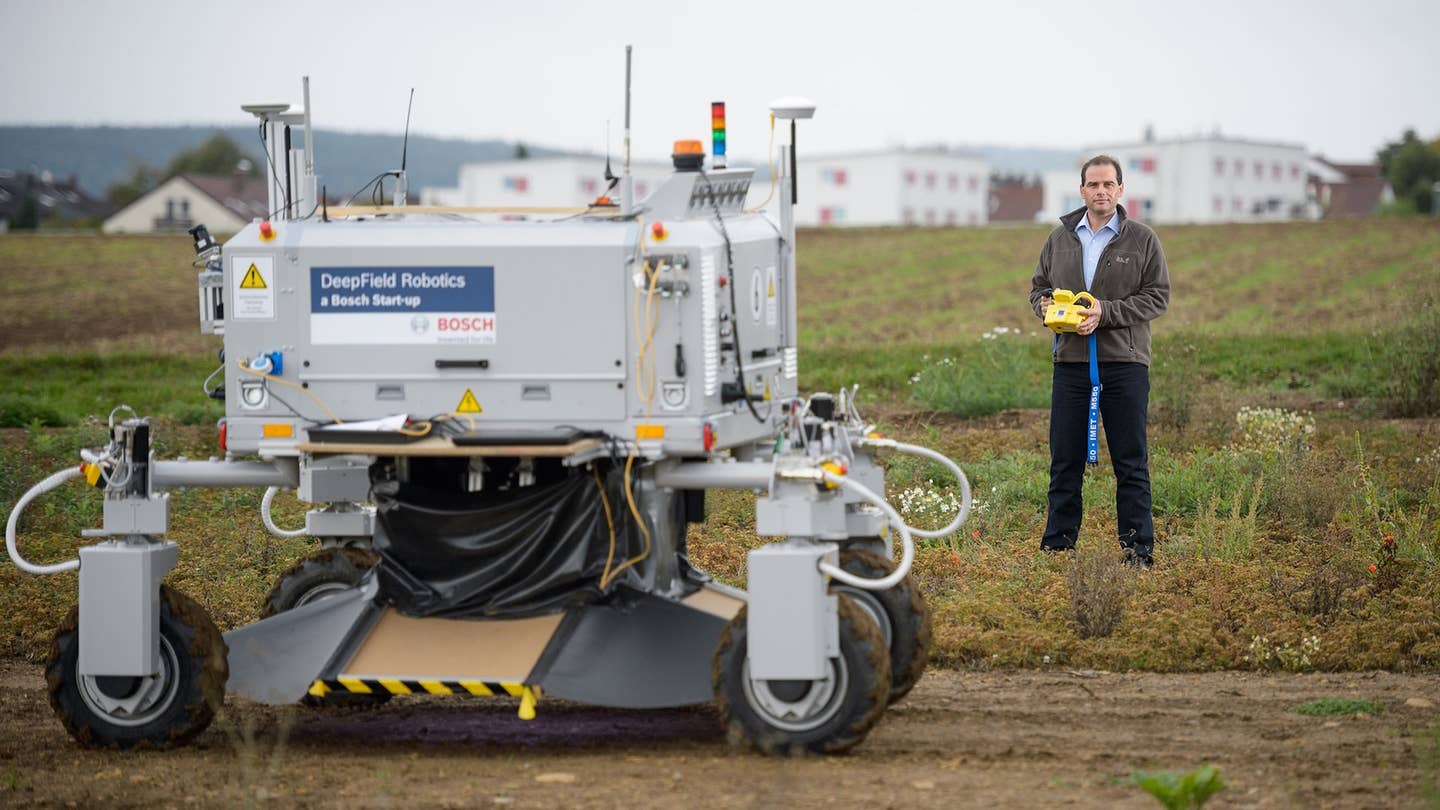Autonomous Weed-Killing Robot Could be the Future of Farming
GPS. Video. Lidar. This ain’t your granddad’s tractor.

From the annals of German farming trivia: The infamous Nürburgring circuit wasn’t initially designed for speeding men, but for saving cows. As brave Autofahrers took up public road racing during the Twenties, they began splattering wandering, grazing livestock in the Eifel mountains. Otto Creutz, who fathered the ambitious racetrack that eventually traced 17.6 multifarious miles over 1,000 feet of elevation change, reportedly said: “I am here in the first place for the farmers and in the second place for motorists.”
Nearly a century later, German ingenuity is lending farmers a robotic helping hand. This is the Bonirob, a weed-killing, crop-scanning field worker that no one will ever call an Illegal. Funded by Germany’s Federal Ministry of Food and Agriculture, created by automotive-industrial giant Bosch and its start-up Deepfield Robotics, the Bonirob puts your typical John Deeretractor to shame.
The Bonirob looks like a compact lunar rover, or maybe the Kush-aided dream of a Humboldt County pot farmer. It makes its way through fields using GPS, video and Lidar scanning. Those fix its position to the nearest centimeter; roughly as exacting as Audi’s autonomous RS7 racing concepts. Using image files, machine learning teaches the robot to distinguish between different plant species. Professor Amos Albert, a robotics expert and Deepfield’s general manager, says it’s a tricky process: “The leaves of carrot and chamomile, for example, are very similar in their early stages. Over time, based on parameters such as leaf color, shape and size, Bonirob learns how to differentiate more accurately between plants we want and plants we don’t want.”
Instead of plucking weeds or hosing them with environmentally sketchy herbicides, the machine uses a ramrod to smash undesired plants into the ground so crop can flourish. But this is more than a earth-friendly Roomba; the Bonirob is named for a system in which laboratory scientists analyze thousands of plants (size, shape, resistance to insects and viruses) to decide which new strains are worth developing. It can take up to 10 years to bring these improved crops to market. Bosch says Bonirob could speed the process by imaging and analyzing plants in the literal field, assessing how well they actually grow. Farmers benefit again: The technology-award-winning robot scans and samples crops to decide how much water and fertilizer they need.
As with autonomous cars that rely on similar sensor technology, Bosch believes its technology could transform farming in coming decades. That’s critical for an agriculture industry that’s seen yields-per-acre triple since 1950, but may need to boost yields by three percent each year just to keep up with population growth. Some potentially awesome technology, even if we don’t get a racetrack out of it.
